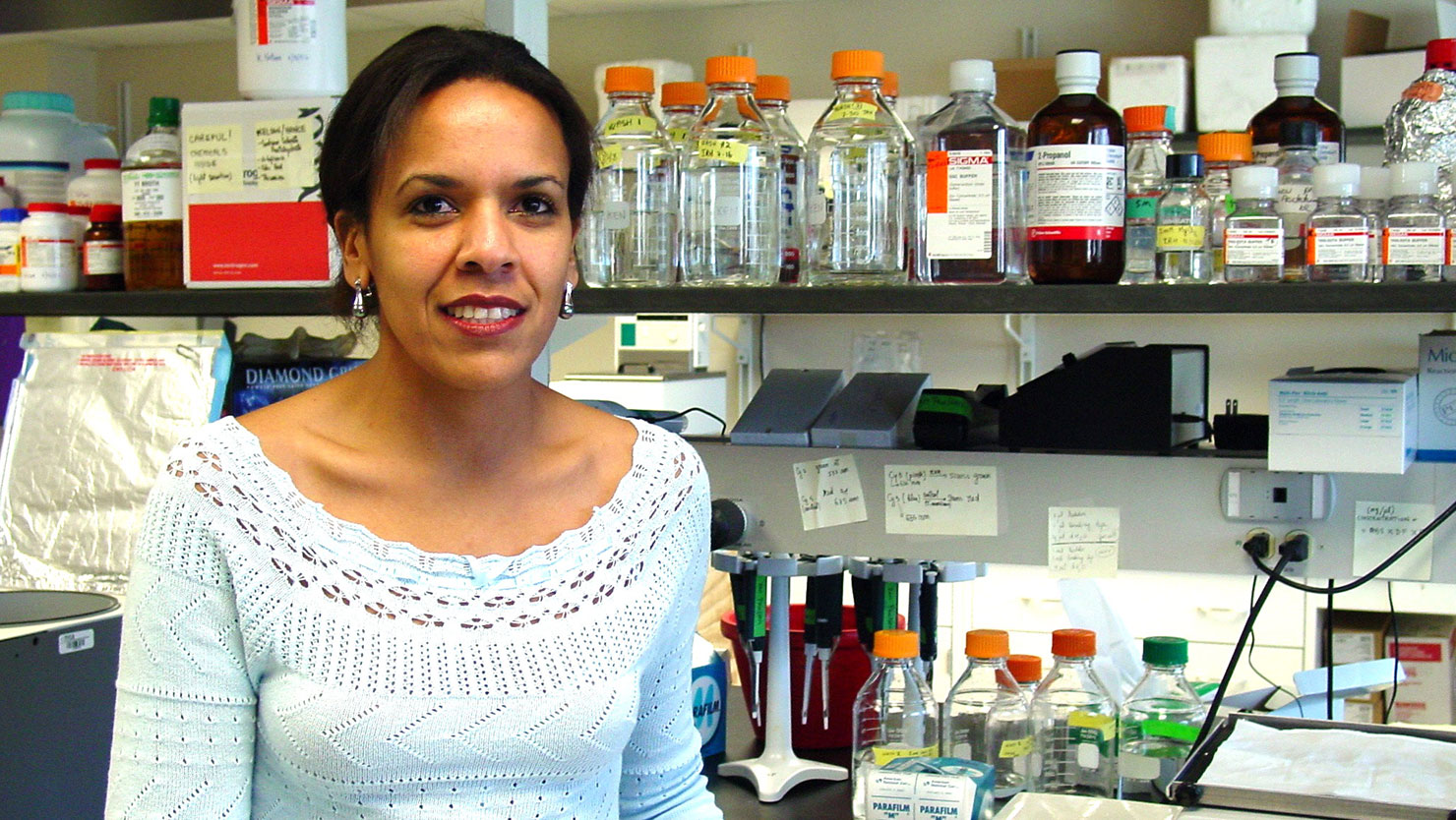Scientist Spotlight: Karen Nelson

Karen’s interest in the natural world was sparked at a young age. Born in Jamaica, she enjoyed the outdoors and wonders of nature. Karen was drawn to animals and wanted to become a veterinarian, but after taking some human and animal nutrition courses in college she was hooked on microbiology. Karen received her B.Sc. in Animal Science from the University of the West Indies, Trinidad and Tobago, her M.Sc. in Animal Science from the University of Florida, Gainesville, and her PhD in Microbiology from Cornell University. The confluence of her interests led her specifically to the study of ruminant microbiology at Cornell. Here she learned that the microbiome, the native microbial populations within an animal, could be very important to its health and well-being. Besides learning all she could about the fistulated and canulated animals, her fondest memory of graduate school is the night when 4 feet of snow was dumped onto campus. It must have been quite the sight for this native Jamaican!
Karen joined JCVI’s legacy organization, The Institute for Genomic Research (TIGR) as a postdoctoral fellow in 1996 where she was drawn to the possibility of elucidating the genomes of archaea, which were at the time, a relatively new domain that had extremely interesting species that are adapted to extremes of pH, temperature, and pressure and that also play a crucial role in the rumen to maintain hydrogen potential. Since then she has steadily risen to become one of the leaders in the fields of microbial and metagenomics research. She considers herself a microbial physiologist who uses genetic tools to link general biochemistry and environmental microbiology, in a sense adding real world context to the vast genomic datasets. When asked what it is about microbes that fascinates her, she said, “It’s the fact that these ‘simple’ organisms are far more complex than we ever thought.” Her early work at TIGR in sequencing Thermotoga maritima, a bacterium isolated from a thermal vent off the coast of Italy solidified this belief. Here was an organism from domain Archaea whose genome revealed that many gene sequences resembled those of Bacteria, suggesting that this organism either shares a deeply rooted ancestor or that it had exchanged segments of it genome across domains through lateral gene transfer –providing critical insights into microbial evolution.
At JCVI she is working on projects including the Human Microbiome Project (HMP), which is a major initiative sponsored by the National Institutes of Health to sequence the plethora of organisms living on and within our bodies. The goal of this project is to sequence and understand these microbes and their contributions to human health and disease. The challenges of this project are many, not the least of which are the shear numbers of organisms living within a healthy human. Karen and her group were part of a national team of researchers who completed the first comprehensive microbial survey of the human gastrointestinal tract. In addition to the human microbiome work she and her team conduct, they are also collaborating with the University of Illinois to investigate the microbial diversity of 24 non-human primates including bonobos, our closest primate relatives. She also continues to be involved in a variety of other metagenomics projects, including studies of the rumen and corals
In December 2009, Karen was promoted to the position of Director of JCVI Rockville, MD Campus, where she will help to grow the research programs and continue her trail-blazing studies in fields of microbial physiology and metagenomics.
Note: Adapted from the original article written by Greg Wanger of the JCVI Microbial and Environmental Genomics research group.